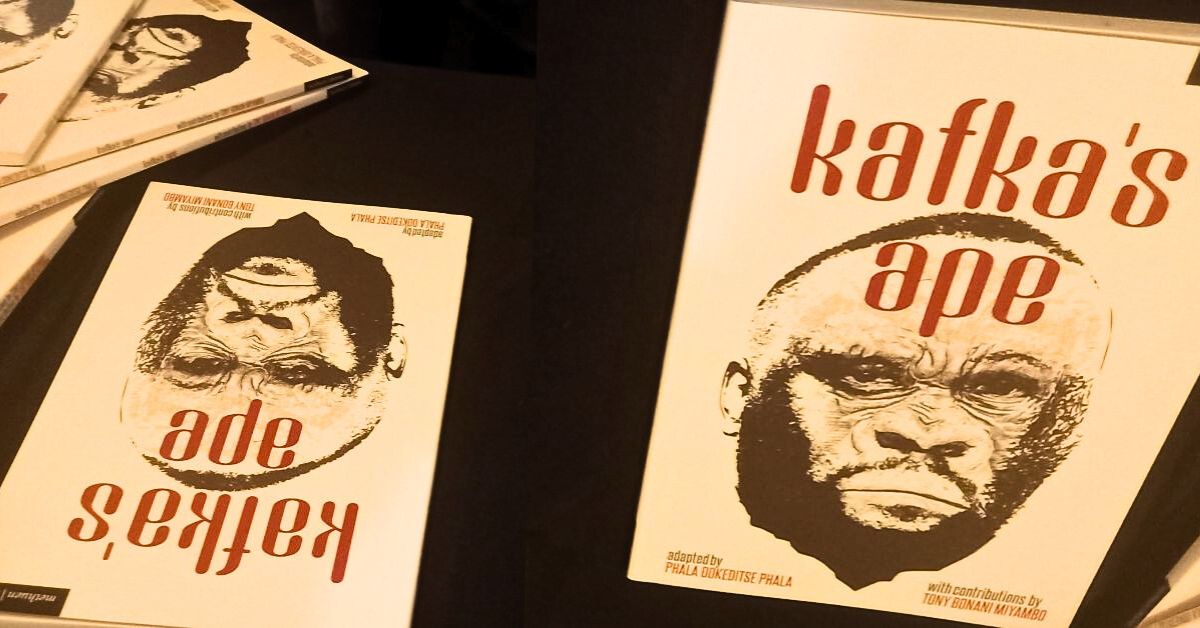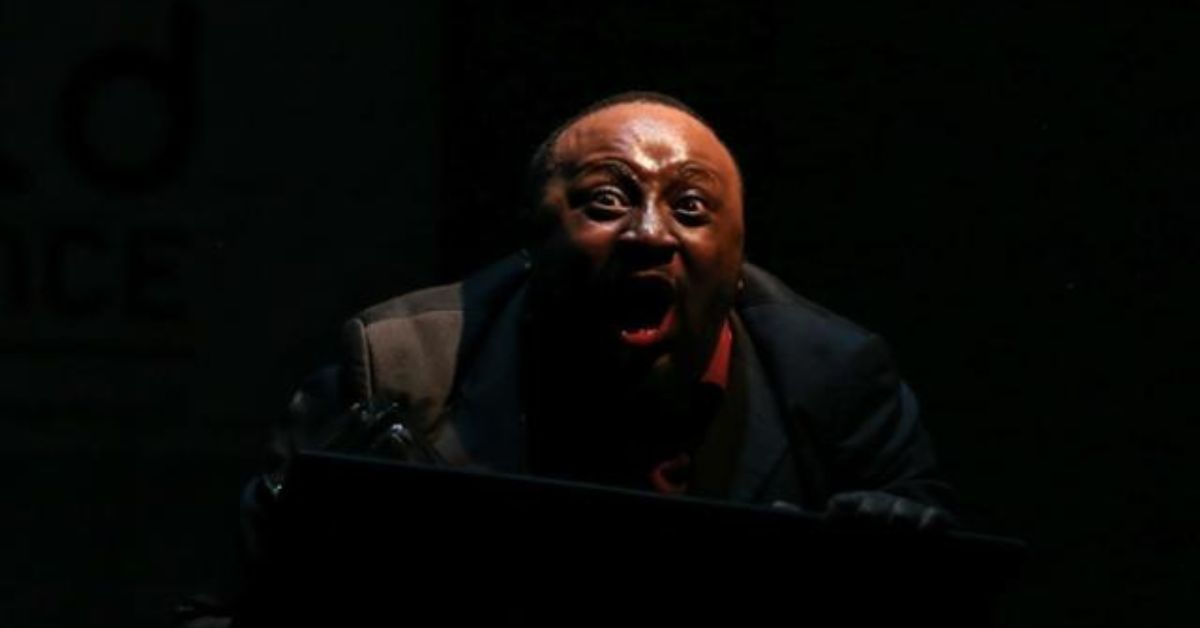It’s not unusual to walk out of a South African theatre production feeling shaken and stirred, but Kafka’s Ape takes this to a whole other level. It doesn’t just unsettle – it forces you to sit in its unyielding unease.
I was privileged to attend the opening night of its first ever run at the Baxter Theatre last week. It was difficult to watch. Far from enjoyable. In other words, it brilliantly managed to achieve exactly what it set out to do, and offered an inescapable, stifling and unnerving confrontation with a very unflattering mirror. Actor Tony Miyambo and director Phala O. Phala have pulled off a theatrical masterpiece, gifting the audience with a discomfort that lingers long after the resounding applause has faded away.
A Story of Survival
Adapted from Franz Kafka’s short story, A Report to an Academy, Kafka’s Ape tells the tale of Red Peter, an ape who is hunted, shot, captured and forced into a tiny cage on a ship transporting him far from home. Painfully confined and fearing for his life and his future, he realises that his survival depends on his ability to appease his (human) captors by imitating them.
He doesn’t aspire to be human. His assimilation into human society evolves from an intuitive strategy to help him survive his traumatic captivity and ensure he can take steps to move forward in his life. Because, as he pleads emphatically, “Isn’t that what we all want?”
Upon his release from the ship into a world far from the one he knows, Red Peter soon realises that his future will entail deciding between two undesirable choices – the zoo or the performance stage. He chooses the latter, and begins to make work of mastering human speech, norms and mannerisms (drinking, spitting, etc). But despite his best efforts, despite his transformation, he remains an ape – though no longer the ape he once was.
When we meet him, five years have passed since his capture, and he’s delivering a report about his progress on the journey from ape to human.
A Masterclass in Physical Theatre
The plot is one that anyone can look up, and I haven’t detracted from the power of the theatre experience by outlining it above. The brilliance of this play lies in its interpretation and its live execution of the original text. Miyambo’s unbroken 50 minute performance is captivating from start to finish. The ape-like physicality and the raw emotion in his portrayal of Red Peter are deeply unsettling and at times even (deliberately) off-putting. And they are coupled with a monologue so full of profound insights that you remain riveted despite the challenging nature of the experience as a whole.
The Weight of Forced Assimilation
Because obviously, Kafka’s Ape is not about what humans have done to a monkey (though our track record with animals leaves a lot to be desired). It’s about what we do to each other. What we do to the other. It’s about power, about who is forced – through violence, through threat – to assimilate to values and practices not their own, and about the unbearable pain of that process. And in some ways it also highlights the futility of those attempts at assimilation. Red Peter may have learned to imitate and perform human behaviours, but he will never be human. And even if he were, what would he have lost in the process?
As a predominantly black audience getting ready to watch this show at a theatre in South Africa, you’d forgive us for thinking we’d know what type of experience to expect. After all, we survived apartheid, we’ve literally been compared to apes, we know all too well what it means to have to prove our humanity. And we understand forced assimilation – not as an abstract concept, but as a lived reality – since even now we continue to codeswitch our way through spaces that we wouldn’t be able to access “as ourselves.”
But I doubt that Kafka (an Austrian-Czech writer who lived from 1883-1924) wrote the original German text in 1917 about the black experience. In fact Miyambo’s portrayal of Red Peter is only the second one ever to feature a black actor (the first being Sello Maake ka Ncube). So yes, it applies to us, but clearly not exclusively.

Who Are “We?”
And so part of what makes the play difficult to sit through is that Kafka’s Ape compels you to consider forced assimilation from perspectives you may not have done before. Red Peter is the only one on stage, so who is he reporting to?
In essence we, the audience, are cast as the Academy. He’s delivering his report to us. And as he does, a deeply unsettling realisation brews: in the world of this production, we play the role of the hegemonic group. We’re human after all, relative to his very obvious ape. What do we do with that power? To what extent are we complicit in upholding the dynamics responsible for his distress? Even as we recognise Red Peter’s struggle as our own, is it possible that in some ways we’re also the ones inflicting it on others?
Questions That Linger
What if “we” are not the only ones who experience the anguish of being othered? What if this is a universal experience we refuse to acknowledge?
Is it easier or harder to watch this play when the actor portraying the figure pleading and screeching in pain on the stage looks like you?
Is this about feeling validated by someone giving voice to your own suffering, or is it asking you to confront the suffering you impose on those you consider quintessentially less human than yourself – like maybe those of a different skin tone, nationality, gender, language group, religion, sexual orientation or tax bracket?
These are terribly uncomfortable questions. But over 100 years since Kafka posed them, we live in a world where clearly, they remain necessary ones.
So no, I didn’t enjoy Kafka’s Ape at all. It was deeply, unflinchingly unpleasant. It was designed and perfectly executed to be.
Hence the standing ovation.
Catch It If You Can
Kafka’s Ape runs at the Baxter Theatre Centre at the University of Cape Town until April 12th. Don’t miss the chance to experience this powerful production – find more details and book your tickets here.
